2024 Winter Conference
Farm Nature's Way with Regenerative AG
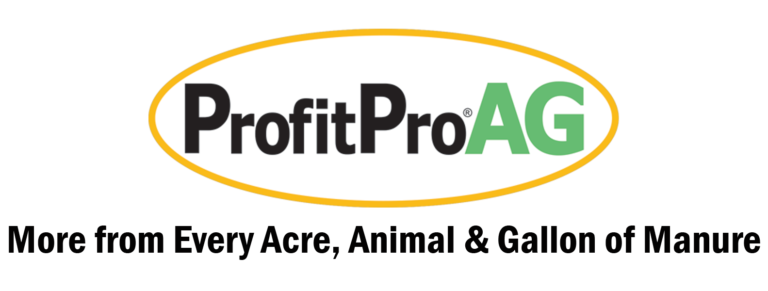
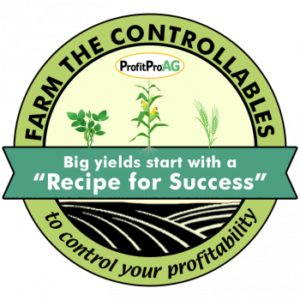
Top 10 Takeaways from ProfitProAG’s 2024 Winter Conference
Have you ever attended a meeting and felt like it was a waste of your time? That’s not how farmers felt about the 2024 ProfitProAG Winter Conference in early February. They had plenty to say about this year’s topics, which included adopting a regenerative approach to farming, biologically treating liquid manure, using cover crops to boost soil health, using drones, cashing in on your farm’s carbon intensity score, and more.
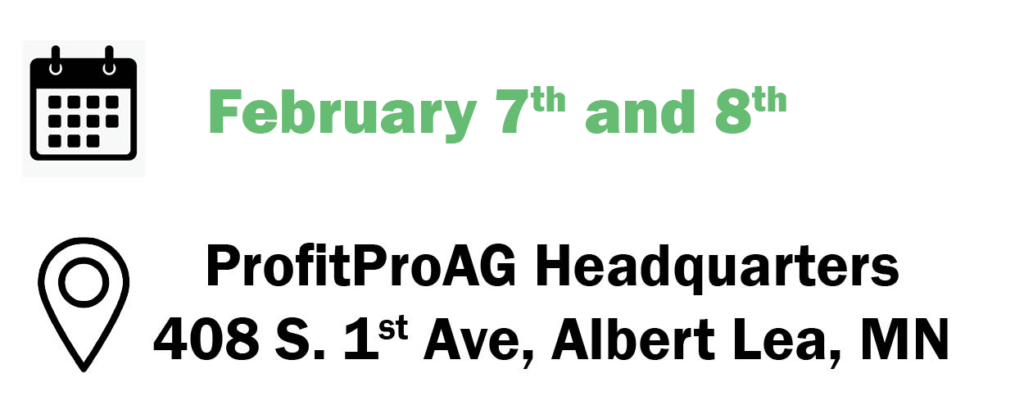

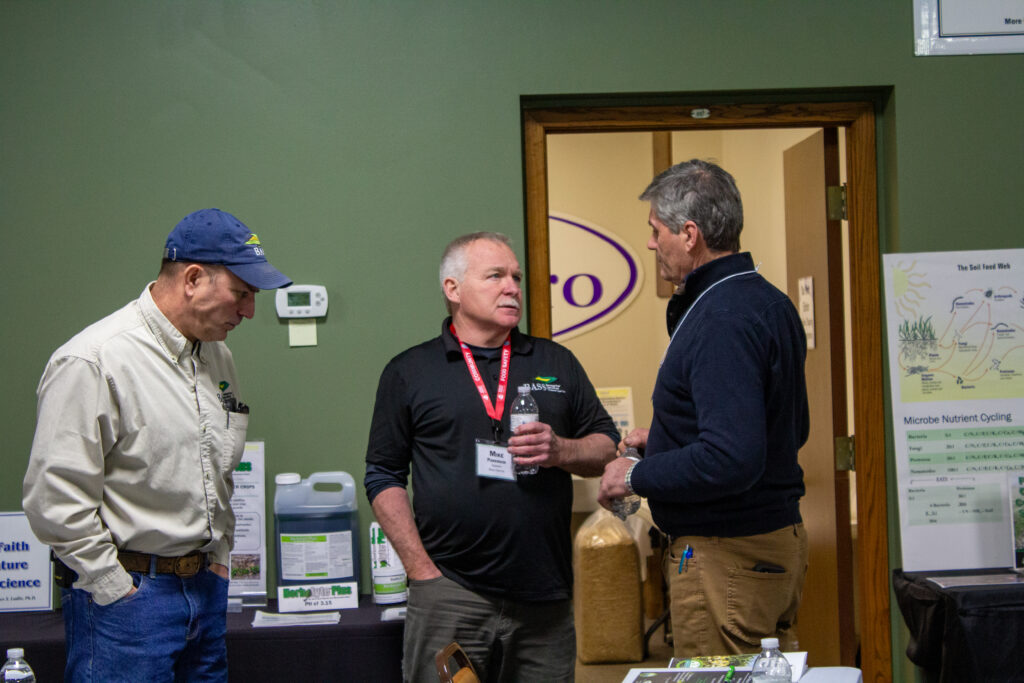

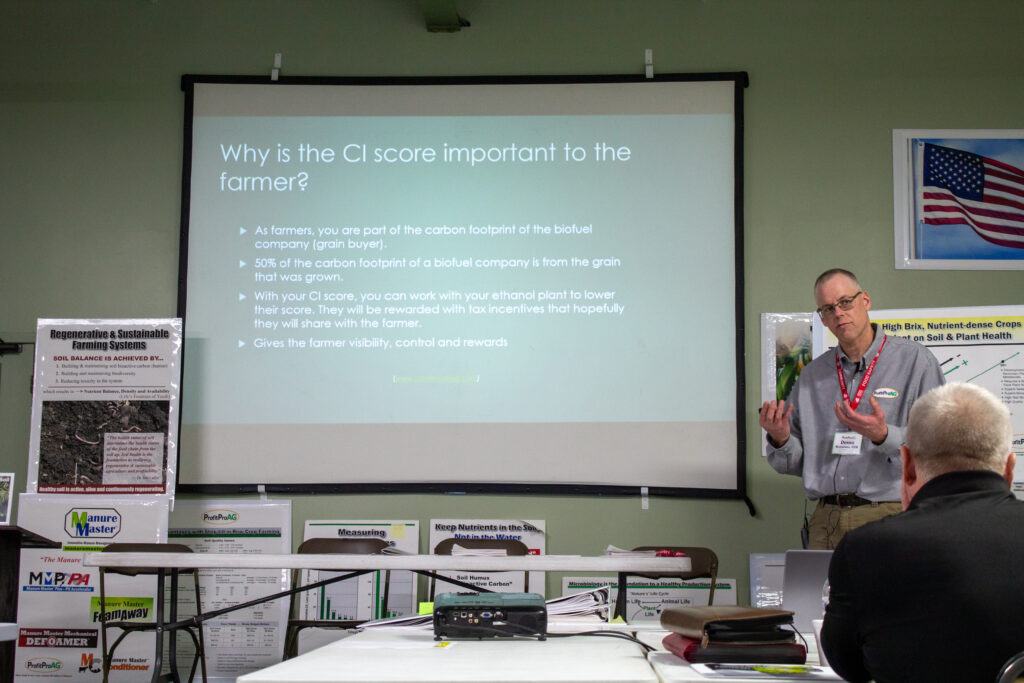

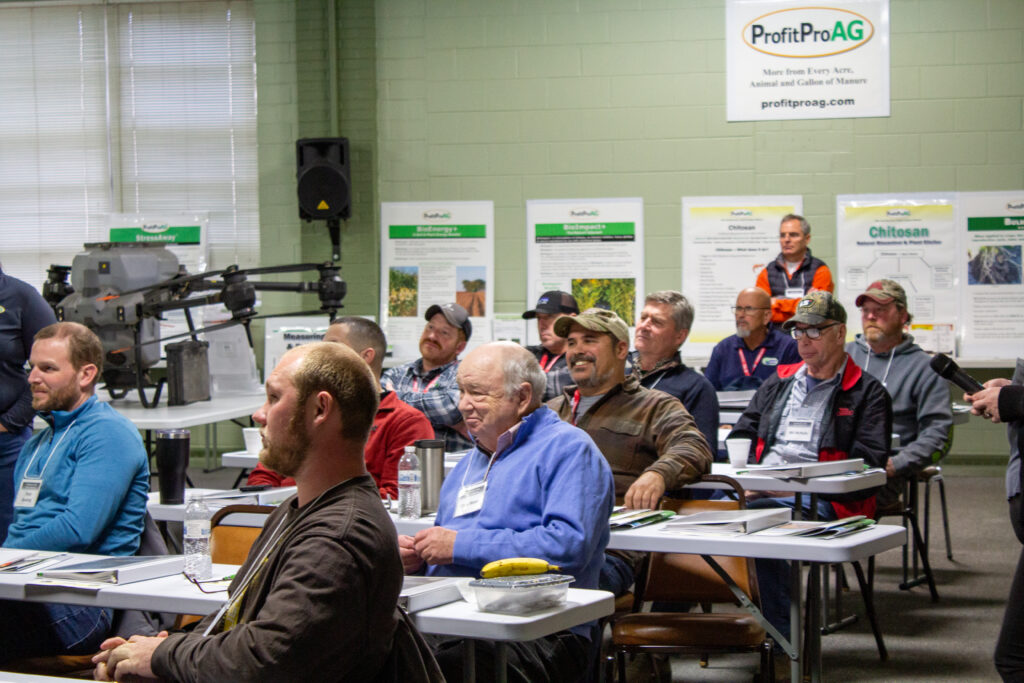

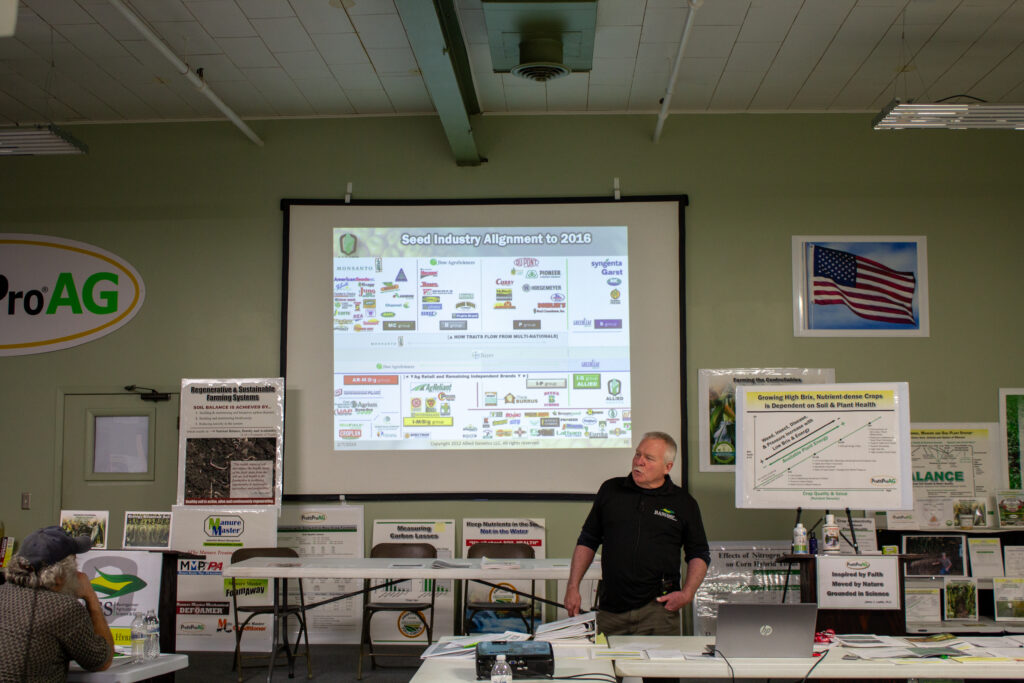
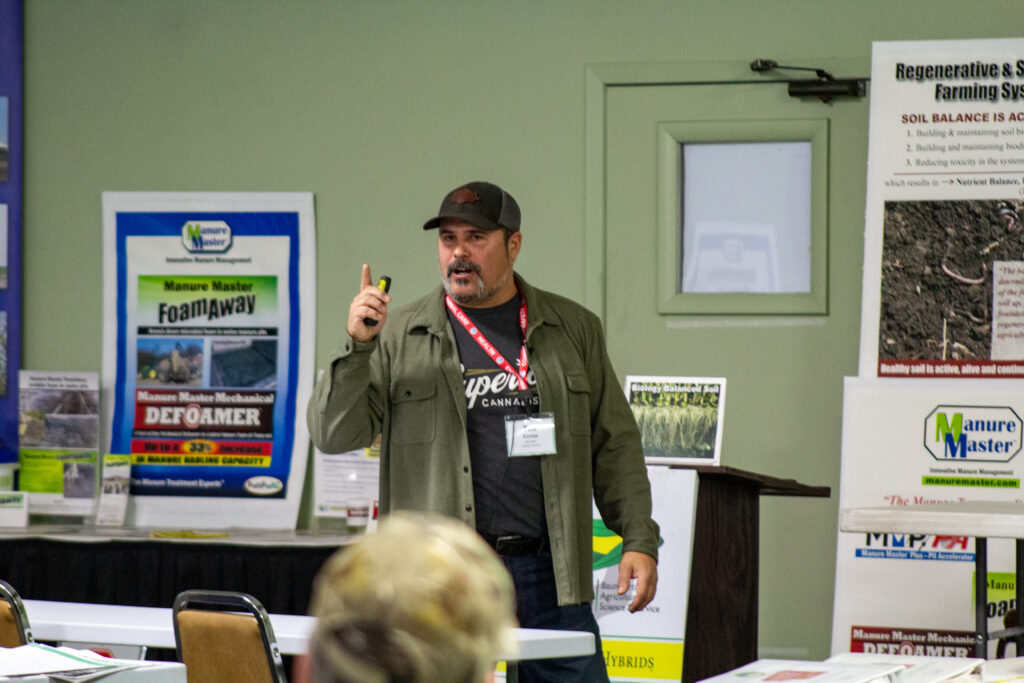

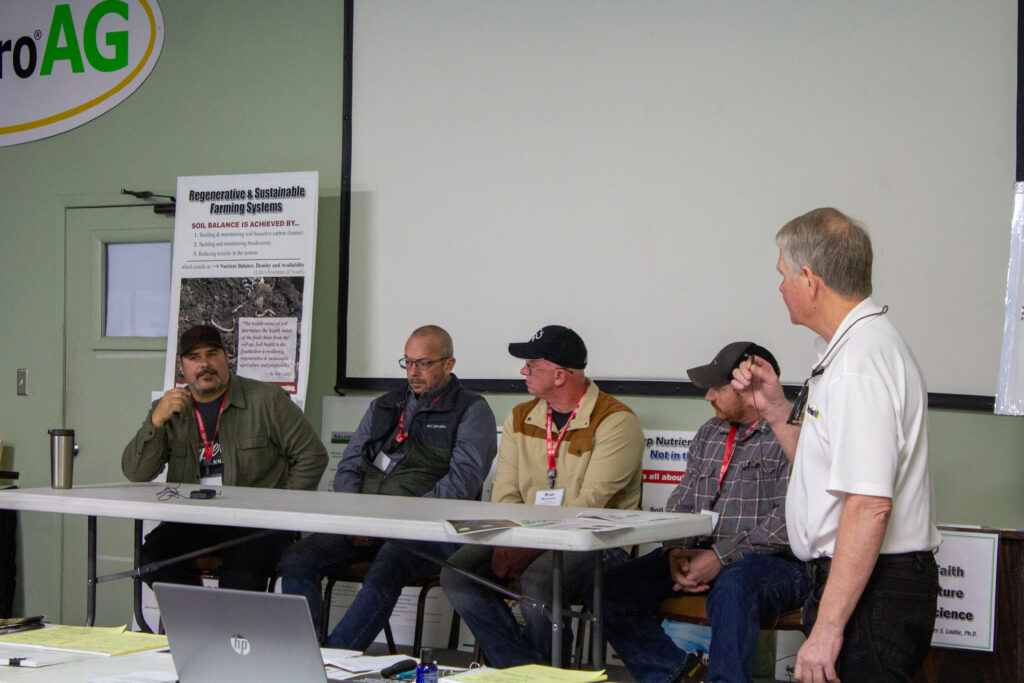
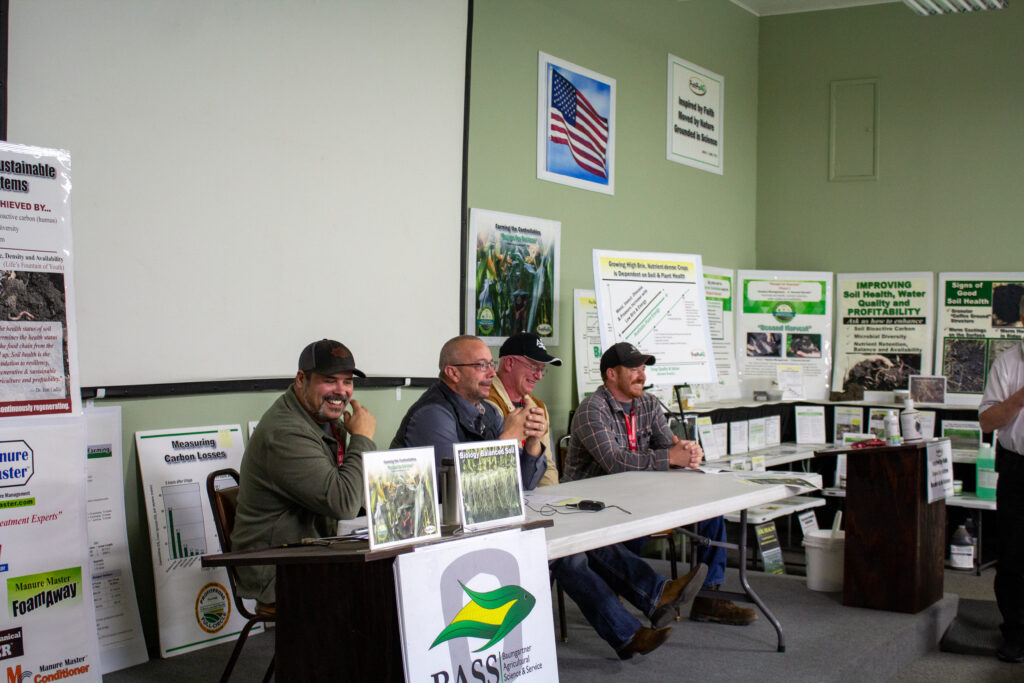
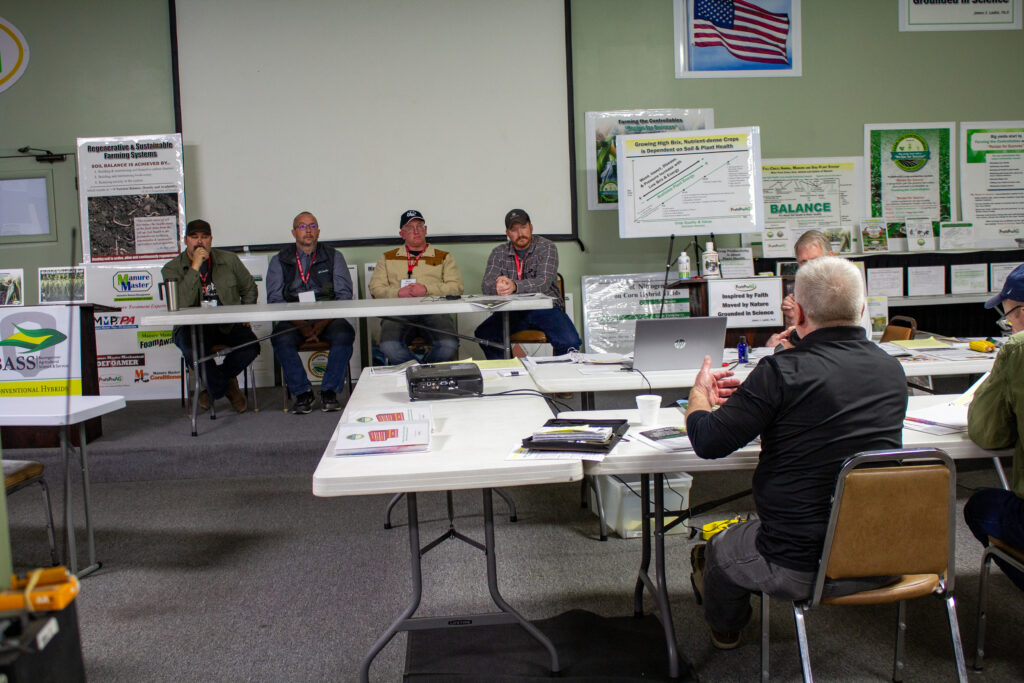

“The ag world is always changing,” said Kent Friedrichsen of Perry, Iowa, who has been working with ProfitProAG for more than 30 years. “Jim Ladlie and his team at ProfitProAG have their finger on the pulse of ag and where it’s headed, and they bring in some of the best speakers I’ve ever heard.”
- Discover how carbon intensity (CI) scores can pay off for you.
Do you know your CI score? Once you do, how can you use your CI score to potentially put more money in your pocket? “Growers who are already using regenerative ag practices will have a big leg up,” said Dennis Klockenga, CCA, a regenerative ag crop and livestock consultant with ProfitProAG.
CI scores are linked to the federal government’s Section 45Z Clean Fuel Production Credit and biofuel producers’ quest to lower their CI scores. Farmers’ starting CI score is 29.1, according to the federal government’s standards. “There’s no money in the 29.1 CI score,” Klockenga said. The biofuel industry’s starting CI score is 55. Biofuel producers like ethanol plants will need to get their CI score below 50 beginning on Jan 1, 2025, or they will be penalized, Klockenga noted. That’s where farmers’ regenerative ag practices, such as cover crops, reduced tillage/no-till, using manure, reducing trips across the field, reducing fertilizer and pesticide use, as well as increased yields, can pay off.
“Your CI score can lower the CI score of ethanol and biodiesel companies,” said Klockenga, who noted that biofuel companies will receive tax rebates from the IRS, which can be shared with the farmer. “The lower the CI score from the farm that raised the grain, the more it can influence the biofuel industry’s CI score, and the more tax incentive the biofuel manufacturers receive.”
- Ask your seed dealer five key questions.
There are a lot of things in the seed industry today that make Mike Parkinson say hmmmmmm. This sales professional with Minnesota-based Bass UnConventianal Hybrids will tell you his biggest frustration in this business has been watching the purposeful increase of seed cost as outside interests took over the U.S. seed industry. He says there are 5 key questions every farmer should ask his or her seed dealer, including:
- In my traited corn, what corn hybrid is the 5% refuge-in-the-bag? Is it the same corn hybrid I paid for?
- In my traited corn, can the 5% refuge-in-the-bag corn be more than 5%?
- If my bag of seed corn is tagged 95%, can the germ legally be less than 95%?
- Is there seed in my bag that’s treated, looks normal and won’t produce ears, that’s neither germ-related or refuge related?
- How much contamination is in this bag?
Parkinson also offered a wealth of information about how to lower your seed cost while improving corn hybrid performance on your farm as he detailed Bass Hybrids’ options for natural biocontrol and stay-green hybrids.
Bass Hybrids, which has been in the seed business for 75+ years and four generations, offer genetics geared towards plant health, tolerance to drought and heat, full-flex ear type for lower populations, early flowering for longer grain-fill periods, high feed quality for livestock operations—all while maintaining a focus on the most important trait: yield. “We’re dedicated to helping farmers take control of their operations,” Parkinson said.
- Biologically treat liquid manure.
Almost every day Chris Chodur gets a call from someone in the livestock industry who’s having big problems with their manure pit, like foam coming up through the slats. “You can hear the fear in the caller’s voice,” said Chodur, a livestock and manure management consultant with ProfitProAG. It’s important to understand the basics of manure management and the microbes that drive the entire system. Every manure pit is filled with billions of microbes, and while they’re out of sight, they shouldn’t be out of mind, Chodur noted. The proper care and feeding of desirable microorganisms can reduce odor issues, flies, foam and other nuisance problems, while providing a more desirable end product to fertilize crops. ProfitProAG offers the Manure Master line of products, Foam Away and more to harness the power of microbes to help improve the value of manure while reducing handling costs and safety issues.
- Put drones to work for you.
Maybe you’re wondering, “Should I buy my own drone or contract with a commercial applicator?” John Pernat, a Wisconsin farmer and regenerative crop and livestock consultant with ProfitProAG, can help answer those questions. “Everyone laughed at me and my drone at first,” Pernat said. “Big companies with many ground rigs said my drone couldn’t compete.” Pernat paid for his drone in three months and now has hundreds of customers. He can spray and seed cover crops with his drone and is working with a variety of partners, including some local co-ops in Wisconsin. If you have drone-related questions, Pernat and ProfitProAG can help.
- Tap into food-chain transparency with regenerative ag.
The quest to raise “carbon-friendly cattle” has a ripple effect throughout the ag industry that includes grain growers to huge retailers. In 2022, Walmart signed an agreement to acquire a minority stake in Sustainable Beef LLC, a rancher-owned company based in North Platte, Nebraska. Walmart is also targeting zero emissions across its global operations by 2040, without relying on carbon offsets.
What’s that mean for farmers? “Farming and food production are at a point where you can get paid for doing the right thing,” says Jake Gross, a fourth-generation rancher from southeast Kansas whose involved with the E3 Meat Co. and Transparency Wise, which uses technology to measure, monitor, and verify agriculture/food sustainability & climate-smart impacts from producer to consumer.
These issues don’t just apply to cattle producers, Gross added. “They also impact row-crop farmers, since feeding cattle crops that were raised with regenerative ag practices keeps carbon intensity (CI) scores low. Regenerative farming also helps fix challenges facing ag, from water quality issues to soil erosion.”
- Adopt a regenerative approach on your farm.
There’s nothing like hearing directly from other farmers. ProfitProAG brought together four Midwestern growers with years of practical experience in regenerative ag, including Minnesota farmer Tom Cotter, Wisconsin farmer John Pernat, Iowa farmer Ryan Welhousen, and Minnesota farmer Dale Viktora.
“It’s important to set goals,” said Cotter, a fourth-generation farmer from Austin, Minnesota. Since focusing more on soil-health practices in 1998 when he began seeding cover crops, he has reduced tillage, diversified cash crops and cover crops, switched from grain-finished beef to grass-finished, and converted 40% of his acres to organic. “Everything I do is about profitability and sustainability, both for my farm and my community.”
- Manage cover crops to improve soil health.
When Tom Cotter started growing cover crops in 1998, there was no one to advise him. Through the years, he has learned a number of tips for success that focus on soil health principles. “First, armor the soil,” Cotter said. “Living creatures—and that includes soil microbes—need food, water and shelter. Keeping plants in the soil is an effective way to armor the soil.” Also, minimize soil disturbance (including physical and chemical), focus on plant diversity, ensure that there are continuous living roots/plants in the soil, and integrate livestock into the system, if you can. “Context is important,” Cotter said. “You have to find practical ways to make these soil health principles work in your fields.” - Use the Haney Test to drive your regenerative crop production program.
What if you could reduce your fertilizer application, simply based on the soil test you use? It’s possible with the Haney test. This powerful test measures nutrients like phosphorus and potassium, plus it evaluates various soil health indicators, such as soil respiration, to analyze soil biological activity.” “Not only does the Haney test offer the potential to help you save money on fertilizer, but it can help you learn more about building healthy, resilient soils that produce healthier crops,” said Dennis Klockenga, CCA, a regenerative ag crop and livestock consultant with ProfitProAG, who is ready to help you make sense of this information-rich soil test. - Farm the Controllables and follow the Recipe for Success.
When you’re trying to make your farm more sustainable and profitable, finding the right partners is critical, especially if you’re looking for answers beyond the industrial ag system. Jim Ladlie, founder and CEO of ProfitProAG, understands where you’re coming from. ProfitProAG helps crop and livestock farmers get more from every acre, every animal and every gallon of manure, thanks to the 3-phase Recipe for Success. During the 2024 Winter Conference, Jim detailed the ProfitProAG philosophy, including the Recipe for Success, which is tailored to each grower’s specific needs and is based on practical farmer wisdom.
“Our Recipe for Success system of biology-based crop production helps you build healthier soils that help produce healthier crops that nourish healthier livestock that produce healthier food,” Ladlie said.
If you’d like to lower your input costs, raise your profit potential, produce nutrient-dense food, contribute to a healthier environment, create a business that’s sustainable for the long run and enjoy farming again, get connected with ProfitProAG.
- Always keep learning.
Iowa farmer Kent Friedrichsen was especially interested in the carbon credits session. “I want to see what these programs can mean for me,” said Friedrichsen, who has been farming full-time since 1976 and follows organic practices to raise corn, soybeans and alfalfa.
He also appreciates the opportunity to visit with the speakers and other farmers during the Winter Conference. “I like to talk farmer-to-farmer and bounce ideas off of other people who are interested in these topics. Attending the Winter Conference is one of the better things I’ve done with my life. I always get something out of these seminars every year.”
Videos from this year’s conference will be available on our YouTube channel soon.
Look forward to seeing everyone back for next year’s conference in February 2025!
Speakers
We will be featuring knowledgeable speakers who will bring you the understanding you need on soil health implementation and testing, and how regenerative agriculture effects you, your farming operation, and ultimately, your profitability.

Dr. Jim Ladlie
Owner – ProfitProAG
Cell – (507) 383-1325
Office – (507) 373-2550
jladlie@profitproag.com
Jim has spent a lifetime helping growers increase sustainability and profitability by adapting a regenerative approach to farming. With a PhD in Crop Science from Michigan State University and over 40 years in the agriculture industry. Dr. Ladlie’s foresight, research, knowledge and creative solutions have led to a proven crop management system that produces healthy crops/animals and manages risks while maximizing profits.

Dennis Klockenga
Regenerative Ag Crop & Livestock Consultant
Cell – (320) 333-1608
Office – (320) 325-0147
dklockenga@profitproag.com
Dennis is top of his profession when it comes to regenerative crop production knowledge and developing profitable grower production plans. He received his Bachelor of Science Degree in Agronomy from the University of Illinois and his Master’s Degree in Soil Fertility from Southern Illinois University-Carbondale. After college, Dennis worked three years in soybean breeding research. For the last 21 years, he has worked for ProfitProAG as a Certified Crop Adviser (CCA) for top commodity crop producers. He enjoys on-site field visits with soil and crop evaluations to determine how to improve profits per acre for his clients.
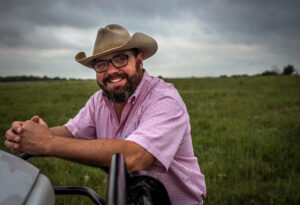
Jake Gross
Transparency Wise
Jake, a fourth-generation rancher from Southeast Kansas, with over a decade of experience in implementing regenerative agricultural practices. His dedication to small family ranches has helped him reach achievements, including the creation and roll-out of an all-natural beef program nationally with Performance Food Group in 2023. In his upcoming discussion, Jake will discuss what value added programs look like and how the use of Transparency Wise can lead to added revenue with farms and ranches.

Mike Parkinson
Bass Hybrids
Mike has been in the seed industry for 40+ years and has watched farmers seed needs “evolve” from conventional corn, to GMO traited corn, and now back toward modern genetically developed research driven conventional corn – not “off patent” conventional corn. He will tell you his biggest frustration within the US seed industry was watching the purposeful increase of seed cost as outside interests took over the industry. Mike has suggestions of how to lower seed cost and at the same time, improve corn hybrid performance on your farm (natural biocontol and stay green traits)
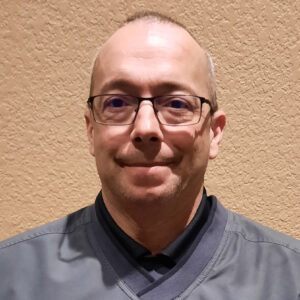
John Pernat
Regenerative Ag Crop and Livestock Consultant
Cell – (920) 285-2400
johndpernat@gmail.com
“Practice what you preach” could be John Pernat’s motto. John has been involved in crop and livestock production for 25 years. He’s especially well versed in the Wisconsin dairy industry, where he has gained a wealth of knowledge about herd health, effective manure management, and ways to produce high-energy, nutrient-dense feed. In years past, John was part of the US Custom Harvesters crew, an association of professional custom harvesters. Today, John farms 800 acres of corn, soybeans, hay and wheat. Not only is he a mechanic, farm manager and more, but he puts ProfitProAG’s products to the test in real-world conditions on his acres. For the past three years, John has been a leader in adapting drone technologies for crop applications.

Tom Cotter
Cotter Farms
Tom is a fourth generation Farmer from Austin MN. He started doing soil health practices in 1998. Since then, he has reduced tillage, diversified cash crops and cover crops, switched from grain finished beef to grass finished and converted 40% of his acres to Organic. His father, Mike was a nationally known storyteller and Tom is continuing that tradition by sharing his journey with us.
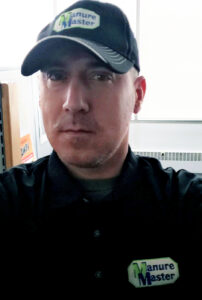
Chris Chodur
Livestock and Manure Management Consultant
Chris is an Iowa-based animal and manure consultant for ProfitProAG who brings years of livestock industry experience to his role. After earning his degree in Ag management from North Iowa Area Community College (NIACC) in 1993, he became NIACC’s farm manager/livestock herdsman. During his 17-year career at NIACC, he managed daily operations at the farrow-to-finish swine operation and at the college’s beef cow/calf operation. This experience helped Chris establish many relationships with swine producers across Iowa and Minnesota.
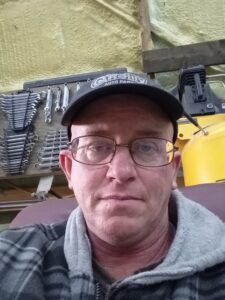
Ryan Welhousen
Welhousen Farms
Ryan has a corn and soybean in operation in NC Iowa. They have switched to 100 percent non GMO production in the last six years. Soil biology has been our main focus and we are currently working on alternatives to fungicide insecticides and common fertility practices.

Dale Viktora
Viktora Farms
Dale is a field agronomist for Beck’s Hybrids covering Southern MN. He and his wife, Senja, focus on adapting a regenerative farming system. ROI is very important to us, so we are always evaluating new products on a trial basis to see how they will work on our farm.
